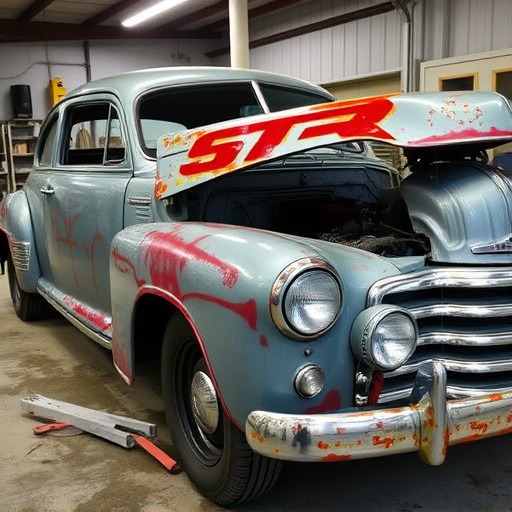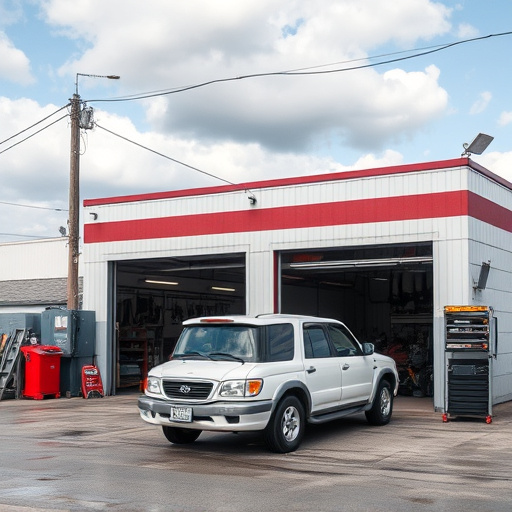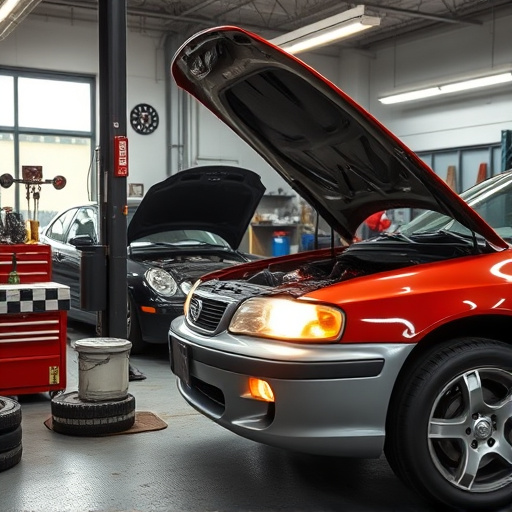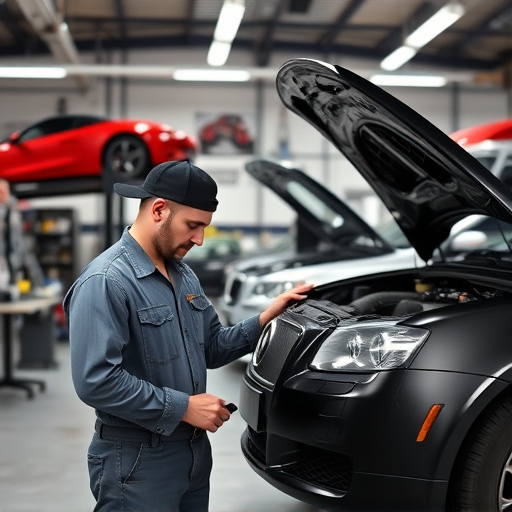The condition of a fleet's vehicles directly impacts operational efficiency and costs. Commercial vehicle repair, including regular maintenance, swift repairs, and specialized services for dent repair and bodywork, is vital for optimizing performance. By addressing engine systems, brakes, tires, exhausts, and structural integrity, specialists ensure peak efficiency, reduce downtime, increase mileage, and enhance safety. This strategic investment minimizes operational costs, boosts profitability, extends vehicle lifespan, and ultimately improves customer satisfaction, making commercial vehicle repair a key factor in fleet management success.
Commercial vehicle repair is a critical component of fleet management, directly impacting operational efficiency and cost-effectiveness. This article delves into the multifaceted benefits of proactive maintenance for commercial vehicles, exploring key areas that contribute to optimal performance. From engine health to regular inspections, understanding these aspects is essential for businesses aiming to maximize fleet productivity while minimizing downtime. We’ll also analyze how successful repair strategies translate into tangible returns on investment.
- Understanding the Impact of Commercial Vehicle Repair on Fleet Efficiency
- Key Areas of Focus in Commercial Vehicle Maintenance for Optimal Performance
- The Return on Investment: Measuring Success Through Enhanced Fleet Performance
Understanding the Impact of Commercial Vehicle Repair on Fleet Efficiency
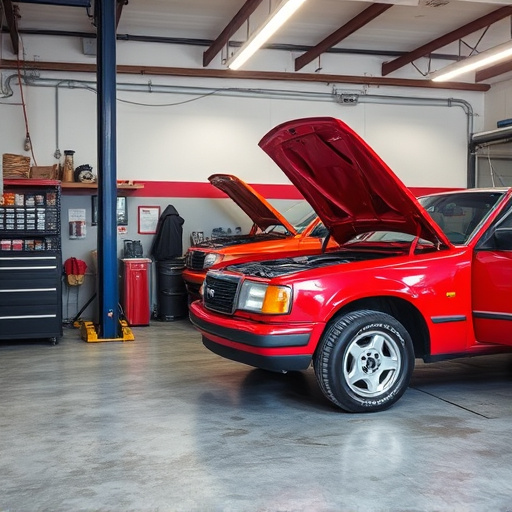
The condition of a fleet’s vehicles directly impacts overall efficiency and operational costs. Commercial vehicle repair plays a pivotal role in optimizing performance by addressing various issues that can hinder productivity. Regular maintenance and prompt repair services for commercial vehicles ensure they remain in top form, leading to reduced downtime and increased mileage.
By efficiently managing repairs, fleets can mitigate the risks associated with vehicle breakdowns. This includes not only minimizing expensive emergency fix costs but also ensuring drivers’ safety and maintaining regulatory compliance. Furthermore, specialized auto dent repair, car bodywork, and car damage repair services contribute to keeping vehicles in pristine condition, enhancing their resale value and extending their lifespan.
Key Areas of Focus in Commercial Vehicle Maintenance for Optimal Performance
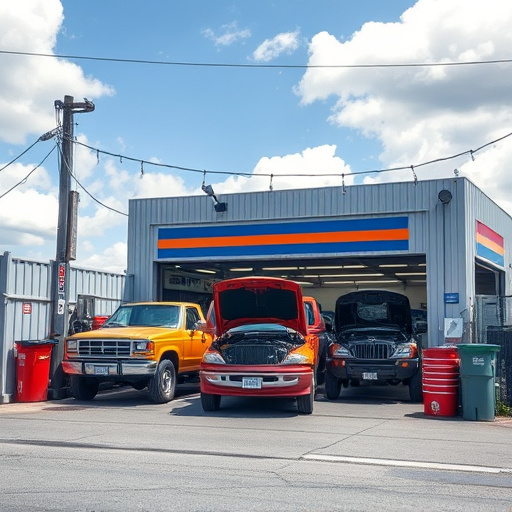
Maintaining commercial vehicles is a critical aspect of ensuring optimal fleet performance. Key areas of focus include regular inspections and preventative maintenance, which are essential for identifying potential issues before they become major problems. Commercial vehicle repair specialists emphasize comprehensive checks of engine systems, brakes, tires, and exhausts to guarantee these components operate at peak efficiency.
Additionally, expert care in car bodywork and collision repair plays a vital role in preserving the structural integrity and overall aesthetics of vehicles. Skilled technicians employ advanced techniques for car body restoration, ensuring that any damage is meticulously repaired and the vehicle’s safety and roadworthiness are restored. By prioritizing these aspects of maintenance, fleet managers can minimize downtime, maximize operational efficiency, and extend the lifespan of their commercial vehicles.
The Return on Investment: Measuring Success Through Enhanced Fleet Performance
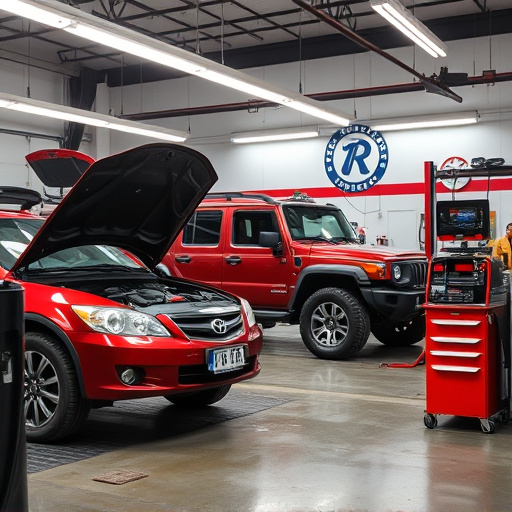
Investing in commercial vehicle repair is not just about fixing breakdowns; it’s a strategic move to optimize fleet performance and boost profitability. The return on investment (ROI) from regular maintenance and timely repairs is significant. By ensuring vehicles are in top condition, businesses can expect reduced downtime, leading to increased productivity and efficiency. This translates into lower operational costs and improved customer satisfaction, ultimately enhancing the overall success of the fleet.
Effective commercial vehicle repair goes beyond fixing visible damages; it involves meticulous attention to engine health, tire management, and routine checks. These practices not only prolong vehicle lifespan but also contribute to safer driving conditions. Moreover, well-maintained vehicles require less energy to operate, reducing fuel consumption and environmental impact. Thus, the benefits of automotive collision repair extend far beyond immediate repairs, making it a crucial aspect for any fleet manager aiming for long-term success.
Commercial vehicle repair is not just a maintenance necessity; it’s a strategic investment. By prioritizing key areas of focus, fleet managers can significantly enhance performance, reducing costs and maximizing return on investment. Understanding the impact of timely repairs and regular maintenance is crucial to navigating the competitive landscape of modern transportation, ensuring your commercial vehicles remain reliable assets for years to come.



